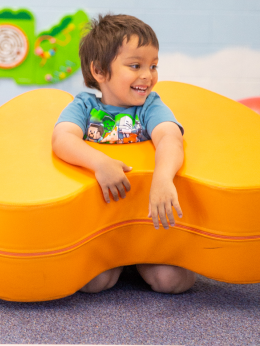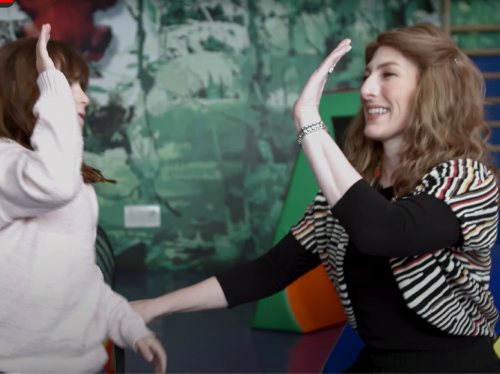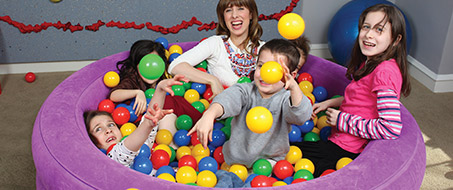Dear Dr. T,
I have 4 children -ages 4 to 12- and they just don't listen to a word I say!
We've tried prizes and punishments, taking away privileges and time-outs, but nothing works for more than a few days. Sometimes, in my frustration, I just begin to yell, and though that seems to work for the moment, I feel really bad about myself afterward.
Can you help me?
Desperate and at my Wits' End
Dear Desperate,
Getting kids to listen is a major parental concern: it certainly is the most common issue in both my office and my parenting groups.
You certainly are insightful to note that yelling does work- in the short run. Yelling is scary- seeing a parent 'losing it' is frightening and the child will generally comply so as to 'right' things in the family. However, once that fear factor is removed, the child quickly reverts back to his old behavior. In short, he has learned nothing. So the cycle of misbehavior continues. Yelling does not work in the long run. It is not an effective tool of discipline, but rather a manifestation of the parent's frustration and poor self-control.
What does work is setting a few consistent rules. Ideally, these rules are made together with your children in a family meeting, because kids are more likely to adhere to a system where they have had input. So, some basic rules like, "Speak kindly" and "Put away your stuff" are clear and easy to follow. You don't want to start with too many rules. Anyone who has made a number of New Year's resolutions knows what I mean.
What is most important is the consistent reinforcement of the rules- so that the kids learn to follow the rules and, additionally, the concept that rules have meaning and are meant to be kept. Behavior theory has determined that the best way to ensure the following of a rule is by positive reinforcement: tangible- like prizes, charts etc.; or intangible like verbal praise, thanx etc. The salient factor is consistency: reinforcing each time the child follows the rule, until the behavior becomes second nature and gradually requires less and less reward.
A word about positive reinforcement: lots of parents will say that it just doesn't work! Actually, the difficulty is not with this method itself, but rather in finding something that is reinforcing for the particular child in question. Some kids are easy to reinforce; they like hugs or 'stuff.' Others cannot be bought so easily, and it's quite a challenge to determine what would be motivating to them. However, by getting to know your kid- his likes and dislikes- and by, perhaps, including him in the process, you will not only find the 'magic key', but also deepen your relationship with the child.
Though consistency is the basis of teaching rules, I do want to distinguish between consistency and rigidity. Consistency is good; rigidity is not. So, here's the deal: if something does not work, doing more of it will certainly not work. So, if what you're doing is unsuccessful, you need to change the music; you need to do something different. Being flexible and open to change are hallmarks of effective parenting; being rigid and 'stuck' are recipes for disaster. It has been noted that what was special about FDR was not his brilliance (he was not!), but his willingness to always try something new (witness the New Deal). Similarly, when our best efforts fail, we need to be open to trying another method, another way.
Discipline is a very complex, important issue in dealing with our kids and often sets the whole tone of our children's childhood. I encourage you to go beyond this brief response and read some of the very excellent parenting books on this topic; I highly recommend the STEP series (any book in this series) by Dinkmeyer and McKay.
Dr. Sara Teichman is a psychotherapist in private practice in Los Angeles and Clinical Director of Etta Israel Center, a Los Angeles based center for youth with special needs.





















Comments